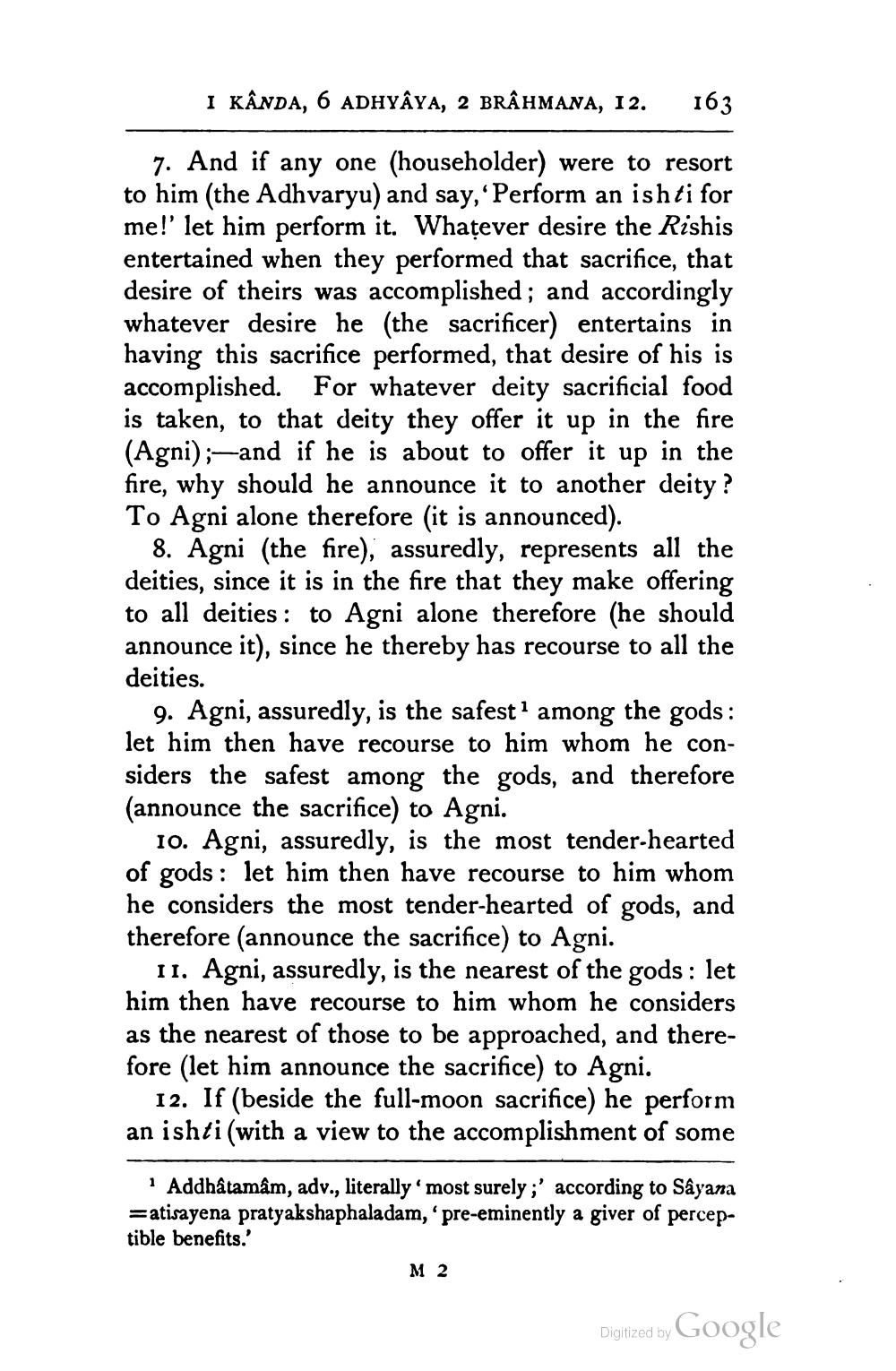________________
I KÂNDA, 6 ADHYÂYA, 2 BRÂHMANA, 12.
163
7. And if any one (householder) were to resort to him (the Adhvaryu) and say, Perform an ishti for me!' let him perform it. Whatever desire the Rishis entertained when they performed that sacrifice, that desire of theirs was accomplished; and accordingly whatever desire he (the sacrificer) entertains in having this sacrifice performed, that desire of his is accomplished. For whatever deity sacrificial food is taken, to that deity they offer it up in the fire (Agni);—and if he is about to offer it up in the fire, why should he announce it to another deity ? To Agni alone therefore (it is announced).
8. Agni (the fire), assuredly, represents all the deities, since it is in the fire that they make offering to all deities : to Agni alone therefore (he should announce it), since he thereby has recourse to all the deities.
9. Agni, assuredly, is the safest among the gods: let him then have recourse to him whom he considers the safest among the gods, and therefore (announce the sacrifice) to Agni.
10. Agni, assuredly, is the most tender-hearted of gods : let him then have recourse to him whom he considers the most tender-hearted of gods, and therefore (announce the sacrifice) to Agni.
11. Agni, assuredly, is the nearest of the gods : let him then have recourse to him whom he considers as the nearest of those to be approached, and therefore (let him announce the sacrifice) to Agni.
12. If (beside the full-moon sacrifice) he perform an ishti(with a view to the accomplishment of some
* Addhâtamâm, adv., literally most surely;' according to Sâyana =atisayena pratyakshaphaladam, pre-eminently a giver of perceptible benefits.'
M 2
Digitized by Google




